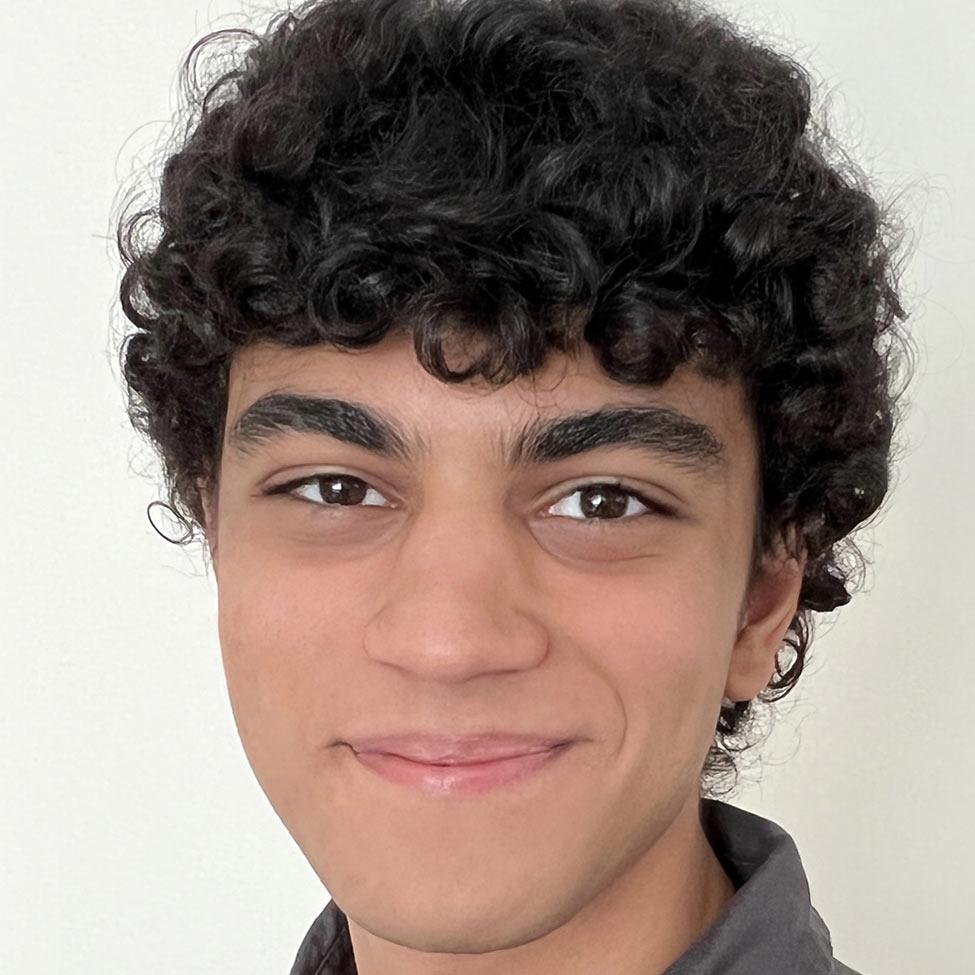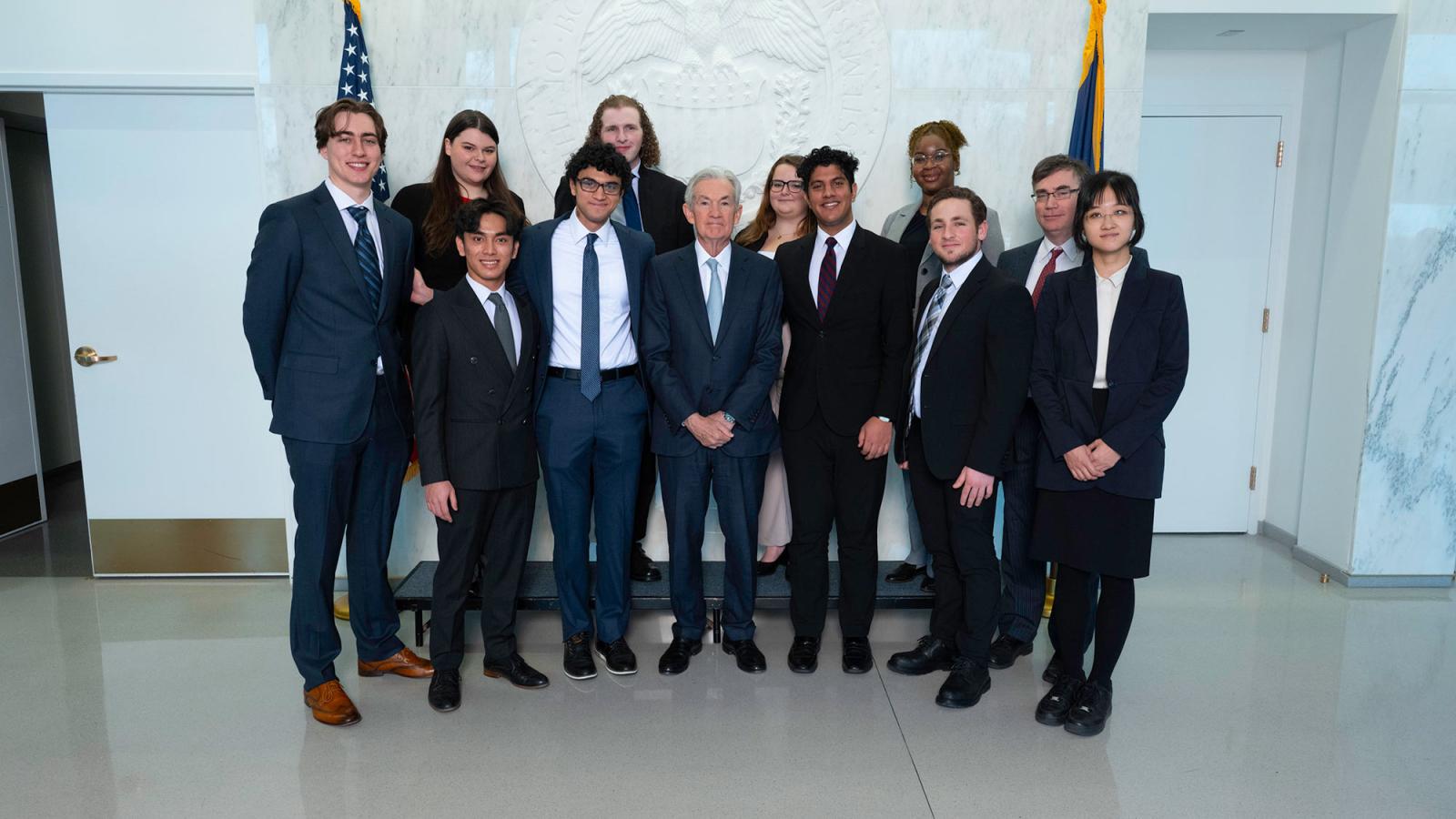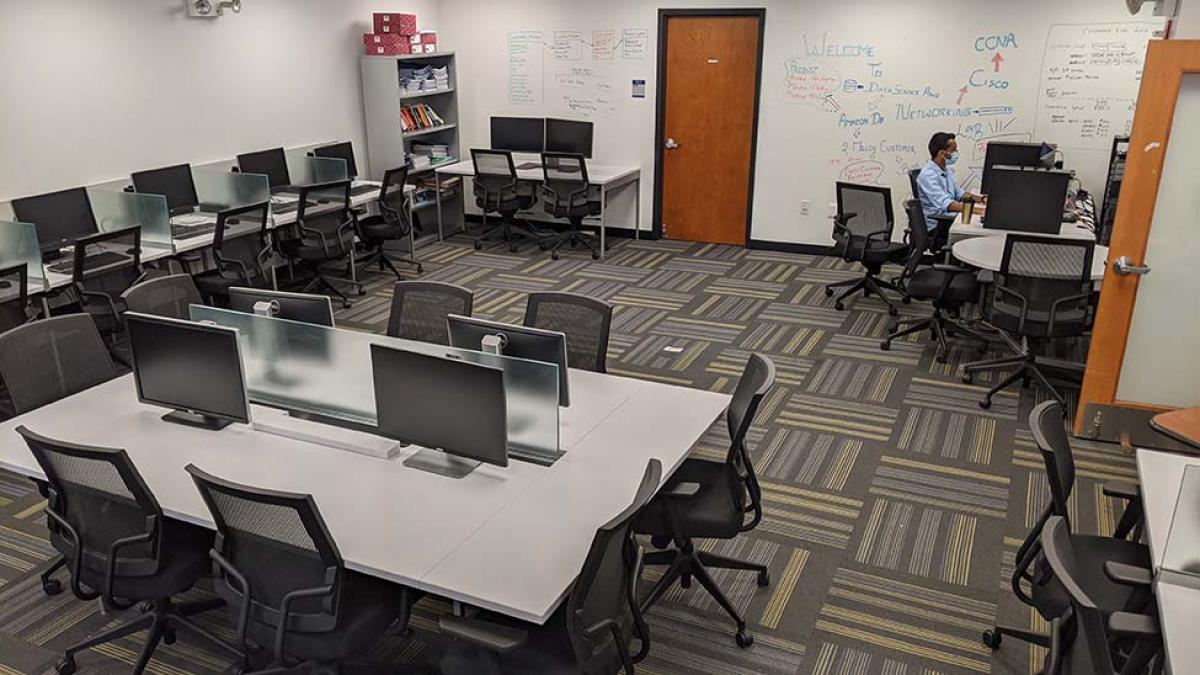
Machine Learning, Student-Powered

Machine Learning. It’s a buzzword of late, and for good reason. Effectively employing this type of artificial intelligence can help reveal otherwise unseen patterns in fields as diverse as weather forecasting, healthcare operations, and nearly everything in between.

It’s becoming a big deal in economics, and the research of Dyson College student Liam Chentoufi ’25 exemplifies how when it comes to this sort of interdisciplinary learning, Pace is on the cutting edge.
Liam initially intended to major in business; until by happenstance, he attended a data-centric event hosted by the economics department during common hour. He cites this event as a huge turning point in his undergraduate career—which ultimately inspired him to change gears, and dive headfirst into the world of economics.
“Meeting the department and all of the professors has been transformative,” says Liam. “It’s those little chances that let us find our niche. I could’ve said to myself ‘I’ll just get lunch and go next year,’ but next year it might not have been the same.”
“It’s those little chances that let us find our niche. I could’ve said to myself ‘I’ll just get lunch and go next year,’ but next year it might not have been the same.”
As a sophomore, Liam took Economics 590: Data Analytics (R and Python), a graduate course taught by Professor Mary Kaltenberg, PhD, that merges economics principles with coding languages to make better use of data. As part of the class, Liam was tasked with a data analysis project.
“My original question was trying to test if there’s any relationship between the locations where the Federal Reserve gives their speeches and some economic variable. Professor Kaltenberg mentioned at one point that this data is really rich for machine learning because it’s textual, but I wouldn’t be able to do it for my 590 class because it was too long a project for a single semester.”
The seeds now planted for a more involved research study, Liam applied for and was accepted to the Office of the Provost’s Undergraduate Student Faculty Research program. With the mentorship of Professor Kaltenberg, he began to investigate how machine learning can be applied to better understand and predict future decisions from the Federal Reserve.
“The Fed, they conduct our nation’s monetary policy. When making their policy decisions they communicate with the public through these speeches that they publish every week or so. This project is trying to predict what they’re going to do at their next meeting based on what they’re saying in their speeches today,” he notes.
Each Federal Reserve speech is publicly available, so Liam’s research involves scraping the text, and building a machine learning model to glean the attitude that is expressed in the text. He’s currently experimenting with two different machine learning architectures; one, a simpler model that requires less computing power but has 60% accuracy in classifying the text. The second, a more complex model that requires computing power beyond his personal laptop, is an adaptation of a model called Roberta developed and honed by Google and Meta.
“[Roberta’s] a larger model that’s more complex, it’s harder for me to understand but it does yield more accurate results; it takes more time and computing power to train the model,” explains Liam.
Professor Kaltenberg, who has been advising Liam as to the types of machine learning tools and resources he can utilize and experiment with for the project, believes this research is very representative of where the field is going; and is proud of the fact that Pace is among one of the first institutions to explore this unique research question.
“Embedding machine learning within economics is increasingly important, and it’s one of the reasons why we created a new degree, computational economics,” says Kaltenberg. “Liam’s project is exactly a reflection of that trajectory within economics, and across many different industries. This particular topic, trying to predict what the Fed will do next, can be extremely lucrative. We are not the first to consider it, but we’re among the first.”
This particular topic, trying to predict what the Fed will do next, can be extremely lucrative. We are not the first to consider it, but we’re among the first.
The research dovetails very nicely with Liam’s future plans—this summer, he’s landed an internship with the Federal Reserve Bank of Boston, where he will further learn about the machinations of monetary policy. After the summer, he plans on deciding whether to pursue a graduate degree in economics or enter the workforce upon graduation in spring 2025.
Through this research, his strong academic achievement, and his interests outside the classroom—he is co-captain of Pace’s nationally recognized Federal Reserve Challenge team—Liam is setting himself up for future success no matter what route he takes. But perhaps most impressive, is the attitude he has developed in part through this research; one that has helped him develop into a more resilient individual, more confidently able to tackle whatever may be thrown is way.
“You’re learning and testing things on the fly, it’s taught me a lot about myself,” says Liam. “With coding, you can receive so many errors, which is head-bangingly frustrating. But when it works, it is euphoric.”
“That’s the biggest thing,” he adds. “Learning how to push through hard things.”
More from Pace
Pace’s new Computational Intelligence Lab is officially open, serving as a hub for those interested in improving their programming skills, learning more about pattern recognition and artificial intelligence, and finding a place for like-minded people to congregate and collaborate.
Meet Christelle Scharff, PhD, a computer science expert focusing on the limitations and biases of AI systems. She and her team are tackling the intersection of AI and African fashion to explore the impact of diverse datasets.
From immersive research to on-the-ground experiences with coopers in Spain, the PaceDocs team is once again crafting a captivating narrative. With dedicated translation efforts, meticulous scriptwriting, and seamless editing, the team navigates challenges to produce a stellar final product which will premiere on May 2.


